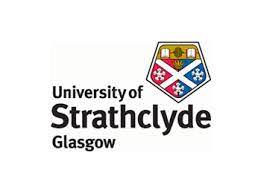University of Strathclyde: Scottish renewable energy collaboration between industry and the University extended into tenth year
A pioneering research programme bringing together academia and industry to address renewable energy challenges has been extended into its tenth year.
The Technology and Innovation Centre’s Scottish Low Carbon Power and Energy Partnership (TIC LCPE) links technical expertise from Strathclyde to the low carbon energy sector and is funded by ScottishPower and SSE, who have renewable energy portfolios across the UK and operate the electricity networks in Scotland.
Innovative projects developed through the Partnership set out to solve challenges such as opening new markets and reducing costs for renewable energy, dealing with a maturing wind fleet and supporting renewables integration into the energy system.
Energy resources
The programme, which started in 2013, will now run until at least 2023 to explore more efficient use of energy resources.
To date, the partnership has focused on reducing the costs and risks associated with both onshore and offshore wind projects, with different sectors working together on key industry challenges.
The programme has directly led to significant improvements that are already benefitting the industry.
One project on managing frequency response from windfarms, ensures National Grid ESO can be kept informed of windfarms’ capability to feed into the market to help better balance supply and demand.
Improved decisions
Another initiative is making it cheaper to install turbines in the sea by using data to make improved decisions for offshore logistics. SSE has already adopted the simulation and optimisation tool at one windfarm, which allows it to work out the most cost-effective time to send out vessels.
Spearheaded by the department of Electronic and Electrical Engineering (EEE) at Strathclyde, the programme links with colleagues across the engineering faculty including the Department of Naval Architecture, Ocean and Marine Engineering, Mechanical and Civil Engineering, as well as Management Science.
New project themes include digital and smart energy networks to further improve carbon reduction by facilitating an increase in the amount of renewable energy that can be transmitted and distributed to consumers.
Low carbon
Strathclyde’s Academic Director of the project, Professor Stuart Galloway, said:
We are delighted the programme has been renewed, which means we can continue our collaboration with SSE and ScottishPower and translate University research into real world impact and benefit for industry.
“The programme will continue to focus on transferring low carbon innovations generated at the University into new tools and capabilities for our industrial partners. We will also continue our work beyond engineering in climate justice to advise how the University can help them deliver on their net zero targets.”
Strathclyde Wind Energy Lead, Dr David McMillan said: “We are very proud of our role in making modern commercial offshore wind a reality, the fruits of which can be seen in the results of the recent successful ScotWind auction.”
Significant value
Alistair McGirr, Head of Strategic Policy and Academic Partnerships at SSE, said: “The Scottish Low Carbon Power and Energy Partnership with the University of Strathclyde has delivered significant value in respect of reducing the costs of wind and helping the electricity networks integrate it into the energy system in Scotland.
“With the scale of the ambition in the recent ScotWind auction, particularly for floating wind, this partnership will be even more important as we collectively seek to deliver low-carbon electricity at lowest cost and help put Scotland at the leading edge of the global energy transition.”
Vital role
ScottishPower Innovation Manager Craig Bradley, said: “This Partnership has a vital role to play in ensuring a collaborative approach to delivering a clean energy future and reimagining how consumers can proactively engage with their energy supply.
“Building more renewables and supporting the transition to net zero will help achieve green energy security for Scotland and the UK while delivering a low carbon, resilient and cost-effective energy system, that addresses climate change and meets the needs of consumers.”

